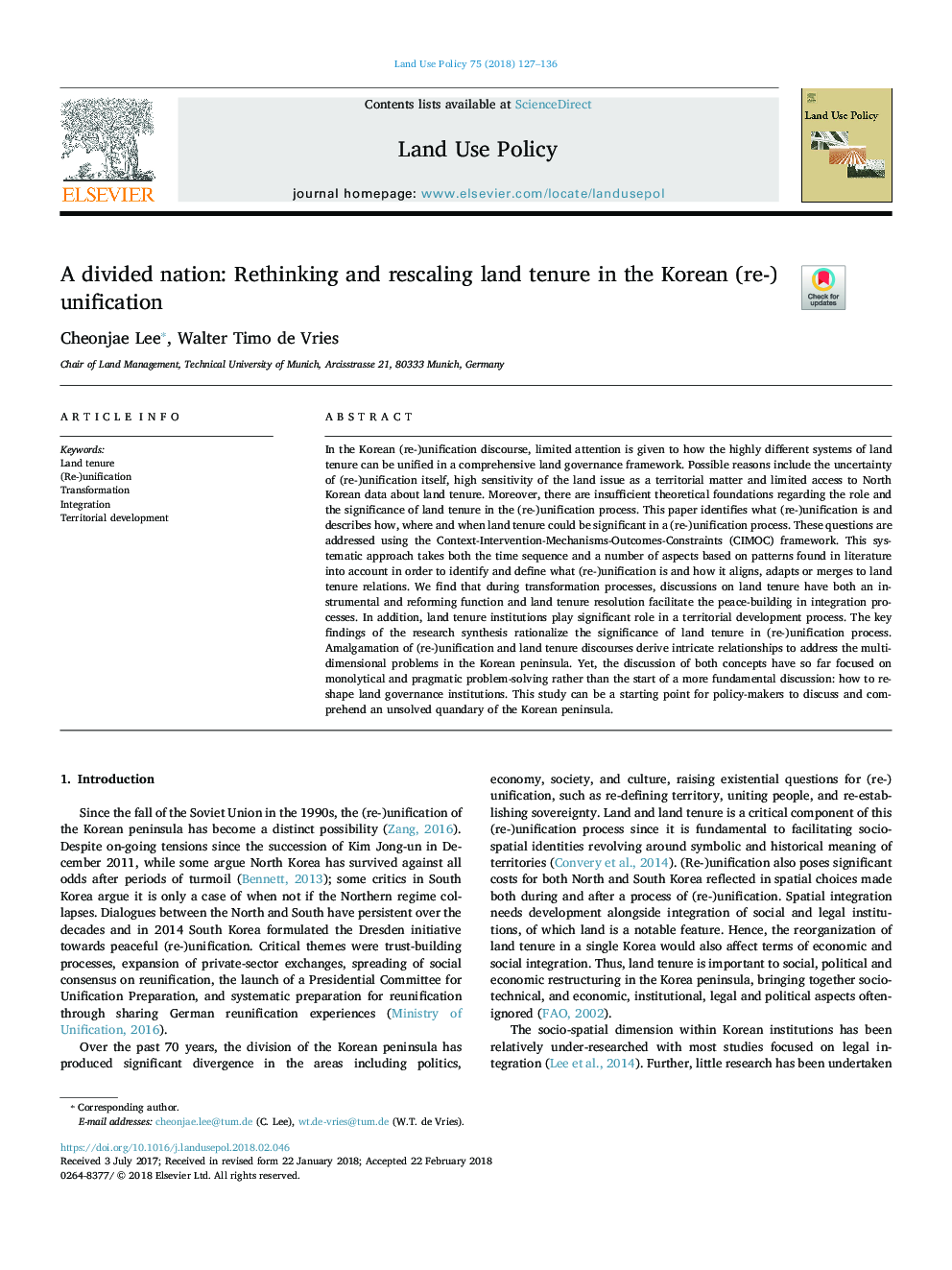| کد مقاله | کد نشریه | سال انتشار | مقاله انگلیسی | نسخه تمام متن |
|---|---|---|---|---|
| 6546354 | 1421808 | 2018 | 10 صفحه PDF | دانلود رایگان |
عنوان انگلیسی مقاله ISI
A divided nation: Rethinking and rescaling land tenure in the Korean (re-)unification
ترجمه فارسی عنوان
ملک تقسیم: بازاندیشی و تجدید ساختار مالکیت زمین در کره (دوباره) اتحاد
دانلود مقاله + سفارش ترجمه
دانلود مقاله ISI انگلیسی
رایگان برای ایرانیان
کلمات کلیدی
موضوعات مرتبط
علوم زیستی و بیوفناوری
علوم کشاورزی و بیولوژیک
جنگلداری
چکیده انگلیسی
In the Korean (re-)unification discourse, limited attention is given to how the highly different systems of land tenure can be unified in a comprehensive land governance framework. Possible reasons include the uncertainty of (re-)unification itself, high sensitivity of the land issue as a territorial matter and limited access to North Korean data about land tenure. Moreover, there are insufficient theoretical foundations regarding the role and the significance of land tenure in the (re-)unification process. This paper identifies what (re-)unification is and describes how, where and when land tenure could be significant in a (re-)unification process. These questions are addressed using the Context-Intervention-Mechanisms-Outcomes-Constraints (CIMOC) framework. This systematic approach takes both the time sequence and a number of aspects based on patterns found in literature into account in order to identify and define what (re-)unification is and how it aligns, adapts or merges to land tenure relations. We find that during transformation processes, discussions on land tenure have both an instrumental and reforming function and land tenure resolution facilitate the peace-building in integration processes. In addition, land tenure institutions play significant role in a territorial development process. The key findings of the research synthesis rationalize the significance of land tenure in (re-)unification process. Amalgamation of (re-)unification and land tenure discourses derive intricate relationships to address the multi-dimensional problems in the Korean peninsula. Yet, the discussion of both concepts have so far focused on monolytical and pragmatic problem-solving rather than the start of a more fundamental discussion: how to re-shape land governance institutions. This study can be a starting point for policy-makers to discuss and comprehend an unsolved quandary of the Korean peninsula.
ناشر
Database: Elsevier - ScienceDirect (ساینس دایرکت)
Journal: Land Use Policy - Volume 75, June 2018, Pages 127-136
Journal: Land Use Policy - Volume 75, June 2018, Pages 127-136
نویسندگان
Cheonjae Lee, Walter Timo de Vries,
